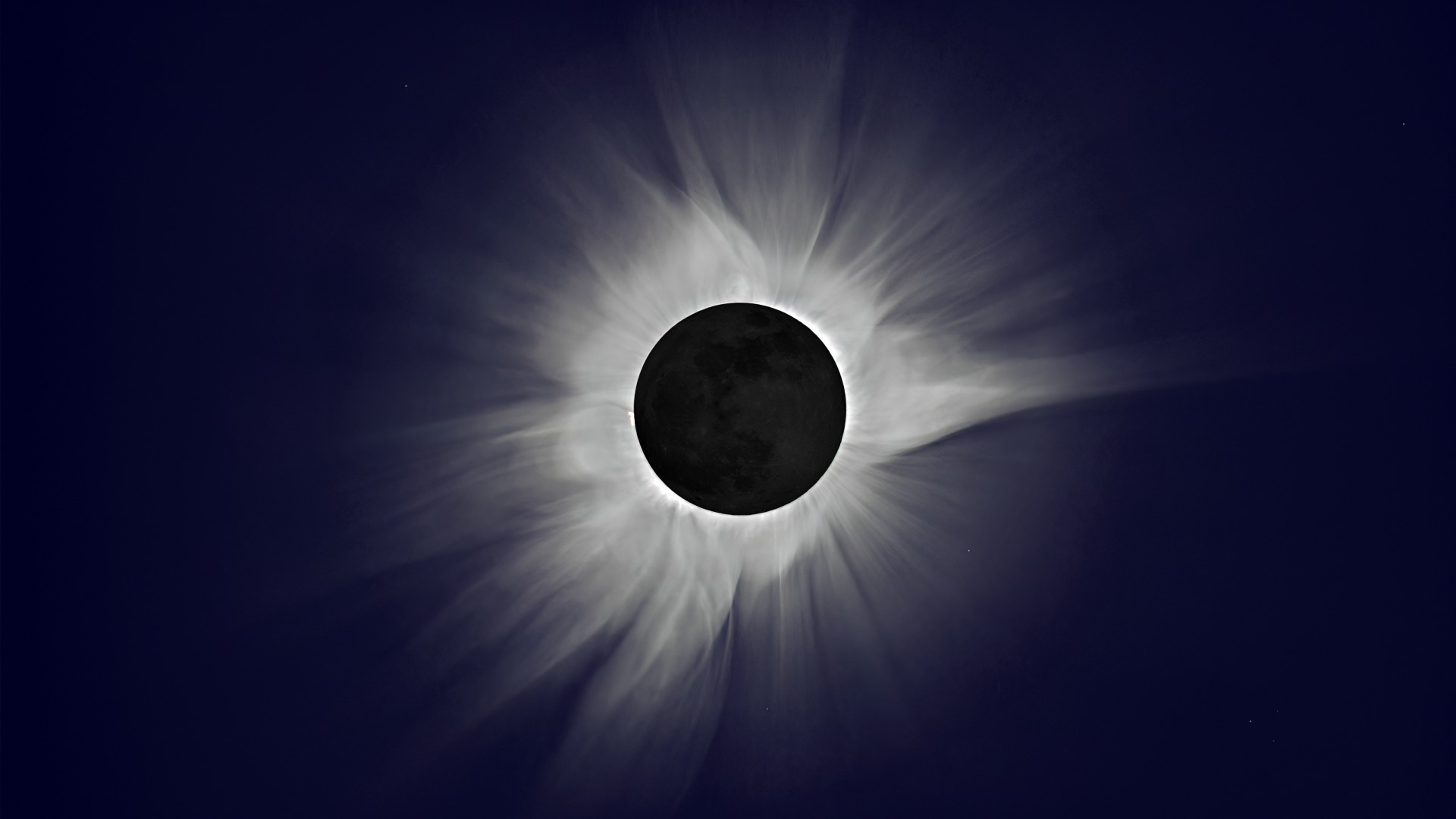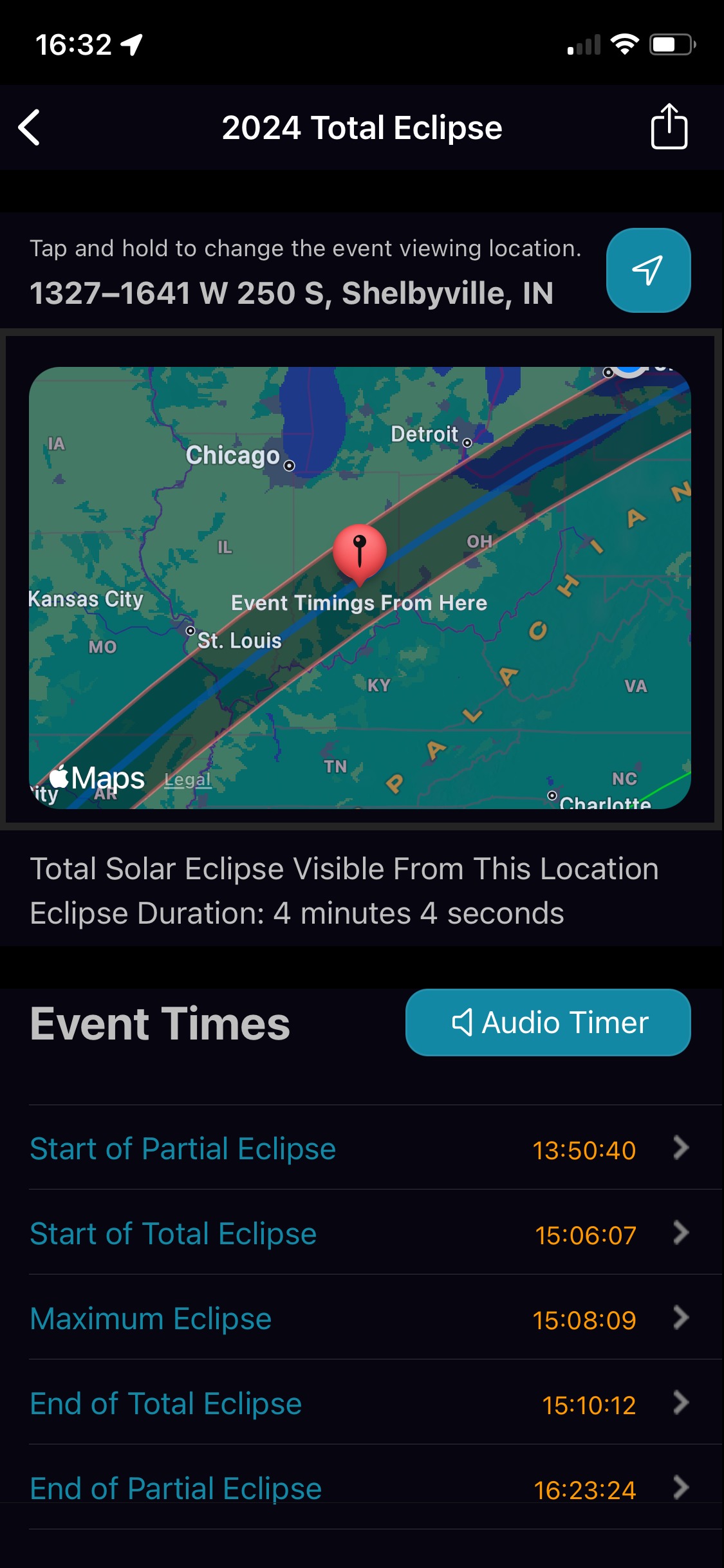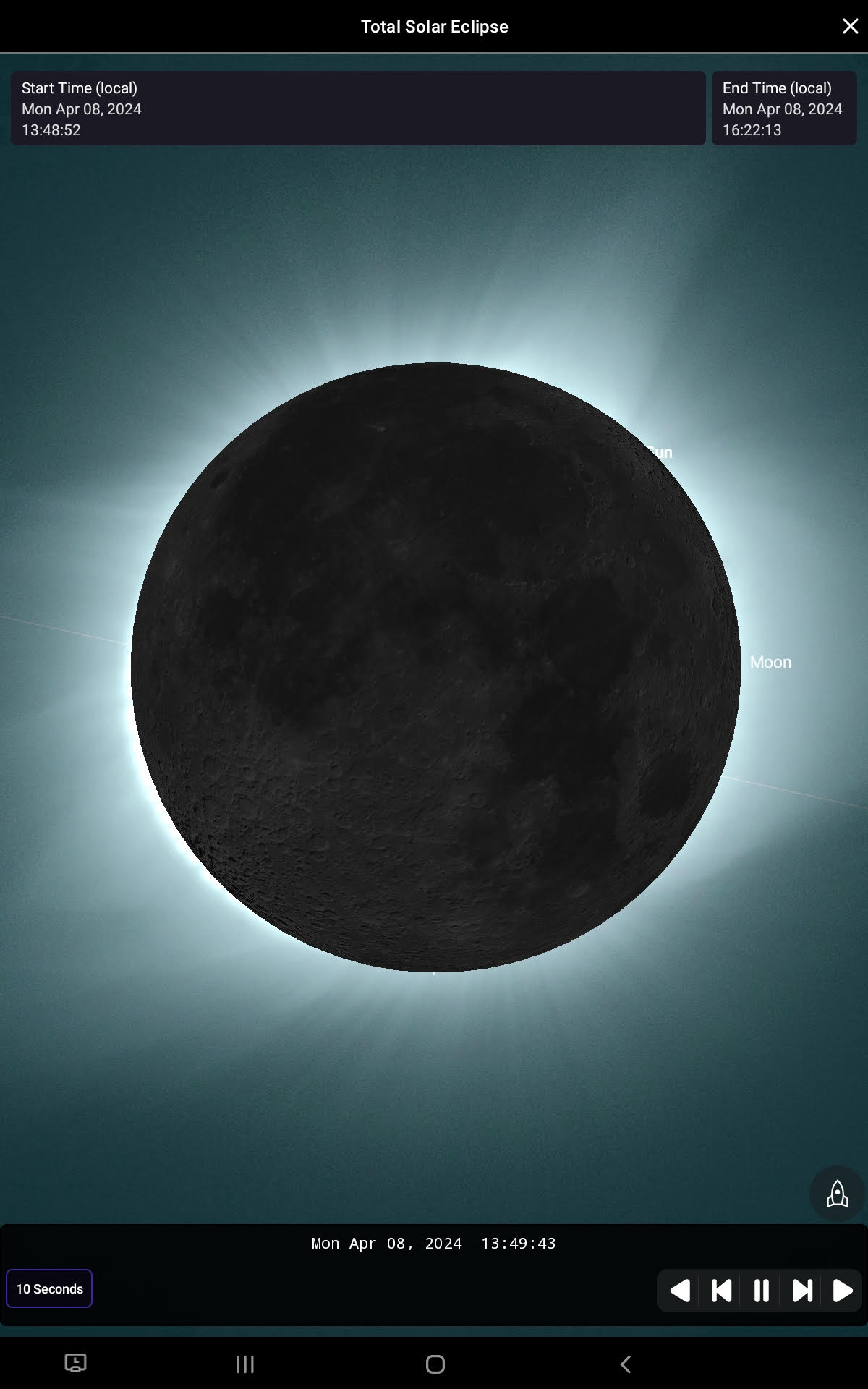Track the April 8 total solar eclipse with SkySafari, now 80% off
Jump into solar eclipse viewing for only 99 cents.

Breaking space news, the latest updates on rocket launches, skywatching events and more!
You are now subscribed
Your newsletter sign-up was successful
Want to add more newsletters?

Delivered daily
Daily Newsletter
Breaking space news, the latest updates on rocket launches, skywatching events and more!

Once a month
Watch This Space
Sign up to our monthly entertainment newsletter to keep up with all our coverage of the latest sci-fi and space movies, tv shows, games and books.

Once a week
Night Sky This Week
Discover this week's must-see night sky events, moon phases, and stunning astrophotos. Sign up for our skywatching newsletter and explore the universe with us!

Twice a month
Strange New Words
Space.com's Sci-Fi Reader's Club. Read a sci-fi short story every month and join a virtual community of fellow science fiction fans!
SkySafari is celebrating the solar eclipse, and you can grab it on a great deal through April 8.
The entry-level version of SkySafari 7, which features on our best stargazing apps guide, locates millions of planets, stars and constellations with a single screen tap. It is on sale right now for just $0.99, just in time for the next total solar eclipse. That's an 80% discount from the usual $4.99, so make sure to act quickly.
Affiliated apps SkySafari Plus and SkySafari Pro will also go on sale roughly one week before the eclipse, with pricing details to be released later. You can also keep up to date with the latest eclipse content on our eclipse live blog and watch all the total eclipse action live here on Space.com.
Related: Total solar eclipse 2024: Everything you need to know
Space.com already gave SkySafari 7 five stars due to its planetarium and telescope features, but company developers told Space.com that more is in store for the solar eclipse that goes across the United States, and parts of Mexico and Canada.
"Android versions of our apps now include special eclipse features, a functionality previously exclusive to our iOS apps," a statement to Space.com read. "All SkySafari users now have access to our interactive eclipse map, allowing them to find the best location and times to view the eclipse without requiring a subscription."
Also, one week before the eclipse, users will see a special "Eclipse" button on the main page, helping viewers find the eclipse panel. The app includes a "new realistic simulation of a total solar eclipse", in which you'll see the sun's super-hot atmosphere or corona, and "Baily's beads" that appear as the sun shines through the moon's rugged terrain.
Read more: 10 phenomena to see and photograph during April's total solar eclipse
SkySafari 7 also offers social stargazing for seeing what other users are doing in real-time, along with an improved interface, tilt-to-slew scope control and augmented reality voice control.
In between finding the best telescope deals, the best binoculars deals and the best solar viewing kits, make sure to get 80% off SkySafari 7's basic app to get ready for the big solar eclipse day.
Breaking space news, the latest updates on rocket launches, skywatching events and more!

Elizabeth Howell (she/her), Ph.D., was a staff writer in the spaceflight channel between 2022 and 2024 specializing in Canadian space news. She was contributing writer for Space.com for 10 years from 2012 to 2024. Elizabeth's reporting includes multiple exclusives with the White House, leading world coverage about a lost-and-found space tomato on the International Space Station, witnessing five human spaceflight launches on two continents, flying parabolic, working inside a spacesuit, and participating in a simulated Mars mission. Her latest book, "Why Am I Taller?" (ECW Press, 2022) is co-written with astronaut Dave Williams.


